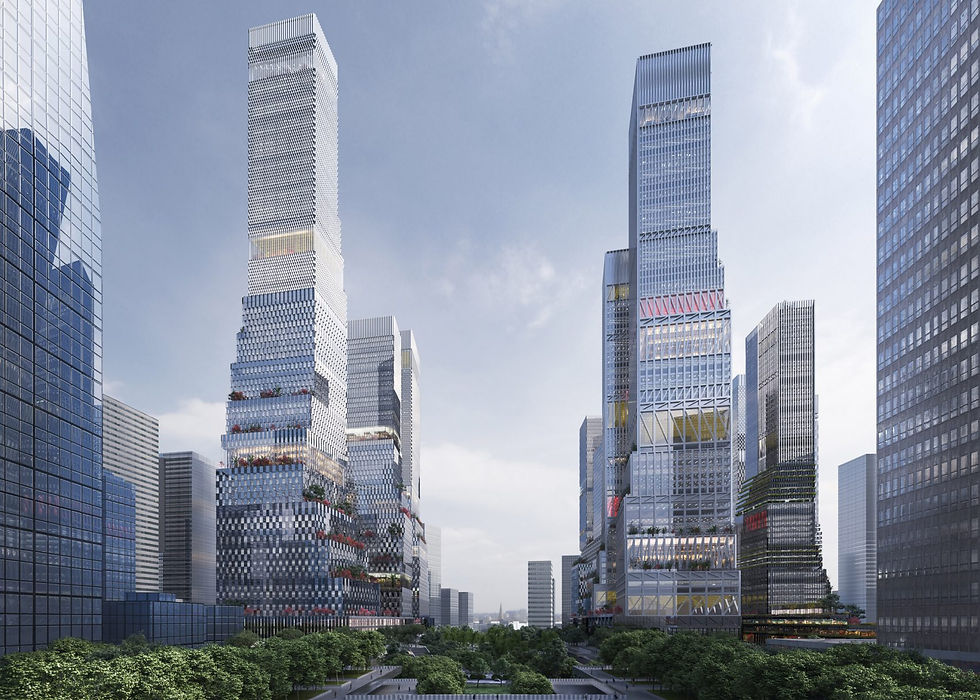
"Eight years have passed, this time I come to see that Shenzhen, Zhuhai and some other localities have undergone rapid development, it is really out of my expectations. After seeing all this, I've got enhanced confidence. " - Deng Xiaoping
Table of Contents
Introduction
A little bit of history
The Shenzhen Special Economic Zone
Qianhai New District
Shenzhen Economy Overview and Economic cooperation with Hong Kong
Shenzhen Stock Exchange
High-Tech Industry and Startups
Cityscape
Biennial Foundation and Bi-City Biennale of Urbanism\Architecture (UABB)
Design Society and architecture firms Mecanoo and Farrels
Overseas Chinese Town (OCT)
Museums and exhibitions:
Shenzhen Convention and Exhibition Center
Shenzhen Civic Center and Shenzhen Museum
Shenzhen Cultural Center
Shenzhen Shekou Maritime Museum
He Xiangning Art Museum
Guan Shanyue Art Museum
OCT Contemporary Art Terminal and OCT Loft
Transport:
Road
Port
Air
Railway
Metro
Sea
Introduction
Foreign visitor: 深圳怎么呀 (how about Shenzhen?)
Chinese taxi-driver: 深圳很好 (Shenzhen very good).
From a small fishing village on the outskirts of Hong Kong to one of the most developed cities of the world, Shenzhen is nowadays an incubator for cutting-edge design, a rule-breaking tech hub, a bastion of next generation urbanism, and a leading cultural capital.
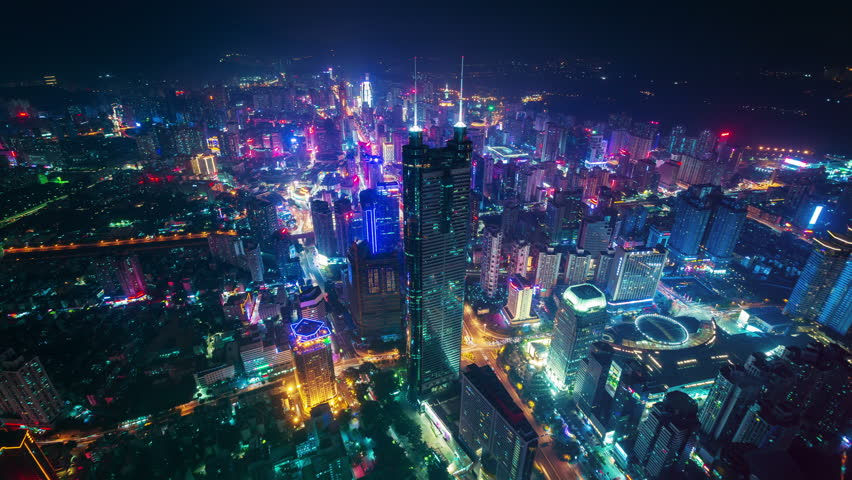
The population of the world’s factory floor, as Shenzhen is known, has exceeded eleven million inhabitants, and it is driven by an influx of laborers from the countryside who make everything from real iPhones to fake Chanel bags.
And here is the first gift from Shenzhen for its visitors-investors, instead of gray factories and dirty streets, there are breathtaking futuristic buildings and skyscrapers, one of the most efficient subway of the world, museums and contemporary art spaces, sprawling technology marketplaces, elegant breweries and bars, all to welcome and facilitate the newcomers. Shenzhen is now China's wealthiest city, with real estate prices that last year surpassed those in Beijing and Shanghai.
However, what we have seen till now is just a first successful phase of developments which introduce Shenzhen into a new era where the city will be a laboratory for the future of China.
In fact, the Chinese government is using Shenzhen as a showcase for its move from "Made in China" to "Designed in China".
Beijing has started a program to rebrand the country as a place that can invent instead of just copy and mass-produce. Therefore, thanks to an interplay between top-down, government planning, bottom-up and DIY urban innovation, Shenzhen is becoming a world-leading innovation center where every sector of industry will be revolutionized.
It is amazing to think that all this innovation have originated from the simple mass production of electronic components. The surreal market of Huanqianbei, where, tech entrepreneurs, hackers and makers gather from everywhere have met for years, and where visitor can find every electronic component and gadget imaginable, is now driving innovation.
For instance, the “pirated” goods, like an Apple Watch that runs on Android and has a removable battery, or all the goods that are more and more less knockoffs than remixes, are actually the experimentation of young talents who can free rein their imagination and creativity even if they have a limited budget.
A little bit of history
Shenzhen is a major city in Guangdong Province, China. It forms part of the Pearl River Delta megalopolis. The city is located immediately north of Hong Kong Special and holds sub-provincial administrative status, with powers slightly less than a province.
Shenzhen was a market town of 30,000 people on the route of the Kowloon–Canton Railway.
That changed in 1979 when Shenzhen was promoted to city-status and in 1980 designated China’s first Special Economic Zone (SEZ).
Initially, the SEZ comprises an area of only 327.5 km2 of southern Shenzhen, covering the current Luohu, Futian, Nanshan and Yantian districts.
The SEZ was created to be an experimental ground for the practice of market capitalism within a community guided by the ideals of "socialism with Chinese characteristics".
In 1982 Bao'an County was restablished, though this time as a part of Shenzhen. The county was converted to become Bao'an District, which was out of the Special Economic Zone. Shenzhen was promoted to a sub-provincial city in March 1983 and was given the right of provincial-level economic administration in November 1988.
With a population of 30,000 in 1980, economic development has meant that by 2008 the city has had 12 million inhabitants.
Shenzhen became one of the largest cities in the Pearl River Delta region, which itself is an economic hub of China, as well as the largest manufacturing base in the world.
For five months in 1996, Shenzhen was home to the Provisional Legislative Council and Provisional Executive Council of Hong Kong. On 1 July 2010, the Shenzhen Special Economic Zone was expanded to include all districts, a five-fold increase over its pre-expansion size. In August 2011, the city hosted the 26th Universiade, an international multi-sport event organized for university athletes.
The Shenzhen Special Economic Zone
The Special Economic Zone (SEZ) comprised only Luohu, Futian, Nanshan, and Yantian districts until 1 July 2010, when the SEZ was expanded to include all the other districts, a five-fold increase over its pre-expansion size.
Adjacent to Hong Kong in southern China, Luohu is the financial and trading center of Shenzhen. Futian, at the heart of the SEZ, is the seat of the Municipal Government. West of Futian, Nanshan is the center for high-tech industries.
Formerly outside the SEZ, Bao'an and Longgang are located to the north-west and north-east, respectively, of central Shenzhen.
Yantian is the location of Yantian Port, the second busiest container terminal in mainland China and the third busiest in the world.
Land borders between Shenzhen SEZ and the rest of China existed before 2010. The border was known as 二线关.
The border was set up since the establishment of the SEZ.
Initially, the border control was relatively strict, requiring non-Shenzhen citizens to obtain special permissions for entering. Over the years, border controls have gradually weakened, and permission requirement has been abandoned.
On 1 July 2010, the original SEZ border control was cancelled, and the Shenzhen Special Economic Zone was expanded to the whole city. The area of Shenzhen SEZ thus increased from 396 square kilometres (153 sq mi) to 1,953 square kilometres (754 sq mi).
Since June 2015 the existing unused border structures have been demolished and are being transformed into urban greenspaces and parks.
On 15 January 2018, the State Council approved the removal of the barbed wire fence set up to mark the boundary of the SEZ.
Although the Shenzhen Special Economic Zone have been extended to cover the whole of Shenzhen, colloquially Shenzhen is still said to be separated into two areas, with the original four districts comprising the SEZ before 2010 as 关内 (within the border) and the rest known as 关外 (outside of the border).
Like all the special economic zones in China, Shenzhen SEZ is listed separately in the national planning (including financial planning) and have province-level authority on economic administration. SEZs local congress and government have legislation authority.
Foreign businesses in SEZs can benefit of special economic policies such as special tax incentives for foreign investments and greater independence on international trade activities.
Qinhai New District
Qianhai Shenzhen-Hong Kong Modern Service Industry Cooperation Zone (前海深港现代服务业合作区), also known as Qianhai New District, is a commercial development area in Shenzhen.
Qianhai is situated in the Pearl River Delta. With the completion of railways and roads by 2020, Qianhai will be within a one-hour commuting radius of the Pearl River Delta and within a 30-minute commuting radius of Hong Kong.
The main arteries of traffic in the region, including the Shenzhen-Zhongshan corridor, Shenzhen Western Port, Shenzhen North Station and Guangzhou-Shenzhen Yanjiang Highway all pass through Qianhai.
According to plans made by the Qianhai administration, as the pilot district for cooperation between mainland China and Hong Kong and innovation in the service industry, Qianhai undertakes four functions:
An area that will aim to facilitate innovation in the modern service industry;
An area that will aim to become a hub of modern services and modern service development;
A pilot area for closer cooperation between mainland China and Hong Kong;
An area to facilitate the industrial reform and sustainable economic development of the Pearl River Delta.
On June 2012, the State Council approved the following policies:
Financial Policies:
Qianhai shall experiment with the expansion of offshore RMB fund flow-back channels. Qianhai will support the development of Hong Kong as an offshore RMB settlement center and will establish a cross-border RMB innovation zone in order to facilitate the development of RMB financial services.
Qianhai shall support the issuance of RMB loans from local banking institutions to international projects, and from Hong Kong-based banking institutions to Qianhai projects under the Mainland and Hong Kong Closer Economic Partnership Arrangement (CEPA).
Qianhai shall be supported in its efforts to establish an equity investment parent fund in Qianhai.
Hasten the internationalization of Qianhai's financial market by opening up to Hong Kong under the stipulations of CEPA.
Qianhai supports the development of innovative financial instruments, and financial products that support the development of the real economy.
Hong Kong and international banking institutions shall be encouraged to establish their headquarters in Qianhai in order to quicken to pace of the internationalization of Qianhai's financial industry.
Taxation Policies:
Eligible companies registered in Qianhai are subject to a 15% preferential corporate income tax rate.
Eligible professionals who are employed in Qianhai are exempt from personal income tax.
Legal Policies:
Qianhai shall support Hong Kong arbitration agencies' establishment of affiliated agencies in Qianhai.
Qianhai shall support the joint operation of mainland and Hong Kong law firms under CEPA and its supplementary agreements.
Human Resource Policies:
Qianhai's human resources services and management mechanism shall be innovated and relevant policies and measures shall be formulated to attract a professional, international workforce, including but not limited to professionals from Hong Kong, Macau, and Taiwan, as well as Chinese professionals who are currently working or studying abroad or those who have returned to China.
Professionals with certification from Hong Kong shall be permitted to provide professional services, the boundary of which is confined to Qianhai and to the enterprises and residents of Qianhai. The specific policies, measures, and regulations of such services shall be formulated by relevant regulatory departments.
Professionals from Hong Kong with the certificates of Certified Public Accountant of China shall be permitted to serve as partners of mainland Chinese accounting firms. The pilot trial procedures will be formulated by Shenzhen and will be implemented in Qianhai upon the approval of the Ministry of Finance.
Education and Health Care Policies:
Hong Kong education service providers are permitted to set up international schools invested by Hong Kong investors in Qianhai upon approval.
Hong Kong health care service providers are permitted to establish hospitals invested by Hong Kong investors in Qianhai.
Telecommunications Policies:
Hong Kong and Macau telecom operators are permitted to establish telecom joint ventures with mainland Chinese operators in Qianhai under the stipulations of CEPA.
Qianhai will establish a dedicated telecommunications channel in order to provide a better and faster channel for telecom businesses as well as other firms in Qianhai.
As a modern service industry cooperation zone, Qianhai's administration has planned to focus on finance, modern logistics, information services, technology services, and other professional services.
Finance: The Qianhai administration plans to promote innovation and partnership within the financial industry by relaxing currency flows between Qianhai and Hong Kong, reinforcing Hong Kong's position as an offshore RMB settlement center.
This initiative is meant to spearhead the internationalization of Shenzhen's capital market, as well as strengthen the partnership between securities markets in Shenzhen and Hong Kong. Qianhai's financial services will aim to complement that of Hong Kong's, in a conscious effort to avoid direct competition and create a win-win situation.
More specifically, Hong Kong banks will be allowed to extend commercial RMB loans to Qianhai-based onshore mainland entities. The People's Bank of China has also indicated that such loans will for the first time not be subject to the benchmark rates set by the central bank for all other loans in the rest of China.
The Qianhai Equity Trading Centre will provide loans to Qianhai enterprises by launching the RMB-denominated wealth management products (WMPs) on the Hong Kong capital market.

Modern Logistics: Qianhai has implemented preferential policies which will effectively allow logistics providers to offer improved and more flexible services across mainland China and globally.
Qianhai Bay Free Trade Port Zone: The Qianhai Bay Free Trade Port Zone is one of the vital components of the Qianhai Shenzhen-Hong Kong Modern Service Industry Cooperation Zone. The construction of 7 warehouses with a total area of 400,000m² has been completed, among which 12,000 m² are for refrigerated bonded warehouses.
Information Services: Qianhai administration will promote the development of software and information technology services, as well as facilitate the cooperation between mainland and Hong Kong telecom operators.
Technology and Other Professional Services: Qianhai will give priority to the development of innovative technologies, creative design services, as well as professional services such as consulting and management. As industrial reform is now underway in the Pearl River Delta, Qianhai's strategic positioning includes the plan to provide manufacturers with new technologies and other professional services to support their reforming efforts and facilitate a smoother transition.
With a planned area of 14.92 square kilometers (5.76 sq mi) and total construction area of 26-30 million m², Qianhai is expected to create 650,000 jobs and house 150,000 residents by 2020.
According to the city blueprint, Qianhai's residents will have access to a park and greenery within 100 metres (330 ft), the ability to reach public transportation within 200 metres (660 ft), shopping malls, restaurants, and hotels within 500 metres (1,600 ft), and education and health care services within 1,000 metres (3,300 ft) of any given point in the city.
In order to attract and retain a creative workforce, the Qianhai administration has claimed that it will aim to establish an internationalized education system, as well as a Hong Kong-standard health care system.
The Qianhai administration has stated that it will prioritize public transportation and sustainable development.
All Qianhai buildings will meet international environmental standards, and the energy consumption of buildings will be closely monitored and controlled.
The Qianhai administration already planned 150 million yuan investment in reforestation, and investments in clean energy, water and waste recycling as well as sustainable urban management.
An example of Qianhai's future work environment is the Qianhai Enterprise Dream Park is modelled after the Silicon Valley, with 58 office buildings and a multi-purpose building that can be used as a conference and exhibition hall and an exchange platform.
Companies who are planning to move in or have already moved in include the Hong Kong and Shanghai Banking Corporation (HSBC), Hang Seng Bank, Industrial and Commercial Bank of China (ICBC), China Mobile, etc.
Although some companies have moved in, there is still ongoing construction.
The Qianhai Youth Entrepreneur Innovation Hub is an area that will become a community dedicated to the facilitation of innovation in young entrepreneurs, providing them with sources of venture capital, the advantage of starting up in one of the most active economies in China, and the opportunity to network with companies as well as like-minded individuals from abroad, particularly Hong Kong youths.
The cost of research and startup in the Qianhai Youth Hub will be partially subsidised.
The prioritised industries in this area are consistent with Qianhai's overall blueprint, including innovative technology, information technology, modern logistics, and cultural and artistic innovation. The development of professional services such as finance, accounting, and law, as well as computer science, e-commerce, statistical analysis, animation, new media, 3-D printing, design, virtual reality, and clean energy are strongly supported by the Qianhai administration.
The Hub will have facilities that help youth entrepreneurs obtain funds from venture capital, public funds, and subsidies from the Qianhai administration, providing them with the resources to either initiate an idea or continue developing their innovation.
In addition, the Qianhai Youth Hub is situated beside the Qianhai Enterprise Dream Park, giving the youth entrepreneurs a chance to network with companies, offers for careers, and venture capital.
In addition to a lab area with facilities such as recording studios and 3-D printing labs, participants in the Qianhai Youth Hub will have access to the facilities in most public labs for free.
There is an instructional building where professors and professionals give seminars, career advice, or provide professional guidance to youth entrepreneurs, and an exhibition hall for the participants' work and ideas. International and Hong Kong youth participation in this hub is strongly supported by the Qianhai administration.
This community will be managed by the Qianhai administration, the Hong Kong Federation of Youths, and the Shenzhen Youth Federation. This project will be completed by the end of 2014.
Shenzhen Economy Overview and Economic cooperation with Hong Kong
Shenzhen was the first of the Special Economic Zones to be established in China and it showed the most rapid growth, averaging at a very high growth rate of 40% per annum between 1981 and 1993, compared to the average GDP growth of 9.8% for the country as a whole.
The economic growth later slowed after this early breakneck pace.
From 2001 to 2005, Shenzhen's overall GDP grew by 16.3 percent yearly on average. Since 2012, economic growth has slowed to around 10% per year.
Shenzhen ranks 22th as the most competitive financial center in the world, in the 2017 edition of the Global Financial Centers Index published by the Z/Yen Group and Qatar Financial Centre Authority.
The city was ranked 19th only one year before always in the 2016 Global Financial Centers Index.
In 2016, Shenzhen's GDP totaled $303.37 billion, putting it on par with a mid-sized Chinese province by terms of total GDP.
Shenzhen's economic output is ranked fourth among the 659 Chinese cities (behind Beijing, Shanghai and Guangzhou). Its total economic output is higher than that of Portugal, the Republic of Ireland, and Vietnam.
Its purchasing power parity (PPP) per-capita GDP was $49,185 as of 2016, on par with developed countries such as Australia and Germany.
As one of the most productive cities economically in China, Shenzhen has the highest GDP per capita, foreign export volume, the number of patent applications and the number of patents owned per capita among all major cities in China.
Today, Shenzhen is a major manufacturing center in China and one of the busiest container ports in the world.
In the financial sector, large Chinese banks such as Ping An Bank and China Merchants Bank have their headquarters in Shenzhen.
The city is home to the Shenzhen Stock Exchange as well as the headquarters of numerous home grown multinational well-known companies such as Konka, Vanke, JXD, Hytera, CIMC, Shenzhen Airlines, Nepstar, Hasee, Foxconn, Tencent, ZTE, Huawei and BYD.
One of the main reasons for Shenzhen’s stellar economic growth is that most companies based there are either privately owned or foreign-funded.
Such firms tend to be more innovative and willing to take risks, which has helped to drive technological innovation and industrial restructuring in the city faster than anywhere else in China.
The combined value of the six strategic industries, which are new energy, cultural and creative, biotechnology, information technology, telecommunications, and new materials, rose 10.5 per cent in 2016 to 780 billion yuan, or close to 40 per cent of gross domestic product.
In 2017, Shenzhen invested more than 80 billion yuan in research and development (R&D), or about 4 per cent of its GDP, the highest proportion of any Chinese city.
Since 2013, Shenzhen has allocated more than 4 per cent of its annual GDP to R&D, putting it on a par with South Korea and Israel.
However, another reason of the astonishing Shenzhen’s development is the economic cooperation with Hong Kong. Hong Kong and Shenzhen have very close business, trade and social links.
As of September 2016, there are nine crossing points on the boundary between Shenzhen and Hong Kong, among which six are land connections. From west to east these include the Shenzhen Bay Port, Futian Port, Huanggang Port, Man Kam To Port, Luohu Port and Shatoujiao Port. On either sides of each of these ports of entry are road and/or rail transportation.
In 2006, there were around 20,500 daily vehicular crossings of the boundary in each direction. Of these 65 percent were cargo vehicles, 27 percent cars and the remainder buses and coaches. The Huanggang crossing was most heavily used at 76 percent of the total, followed by the Futian crossing at 18 percent and Shatoujiao at 6 percent. Of the cargo vehicles, 12,000 per day were container carrying and, using a rate of 1.44 teus/vehicle, this results in 17,000 teus/day across the boundary, while Hong Kong port handled 23,000 teus/day during 2006, excluding trans-shipment trade.
Trade with Hong Kong in 2006 consisted of US$333 billion of imports of which US$298 billion were re-exported. Of these goods 94 percent were associated with China. Considering that 34.5 percent of the value of Hong Kong trade is air freight (only 1.3 percent by weight), a large proportion of this is associated with China as well.
Also in 2006 the average daily passenger flow through the four connections open at that time was over 200,000 in each direction of which 63 percent used the Luohu rail connection and 33 percent the Huanggang road connection. Naturally, such high volumes require special handling, and the largest group of people crossing the boundary, Hong Kong residents with Chinese citizenship, use only a biometric ID card (Home Return Permit) and a thumb print reader. As a point of comparison, Hong Kong’s Chek Lap Kok Airport, the 5th busiest international airport in the world, handled 59,000 passengers per day in each direction.
In 2003 the boundary crossings for Hong Kong Residents living in Hong Kong made 78 percent of the trips, up by 33 percent from 1999, whereas Hong Kong and Chinese residents of China made up 20 percent in 2006, an increase of 140 percent.
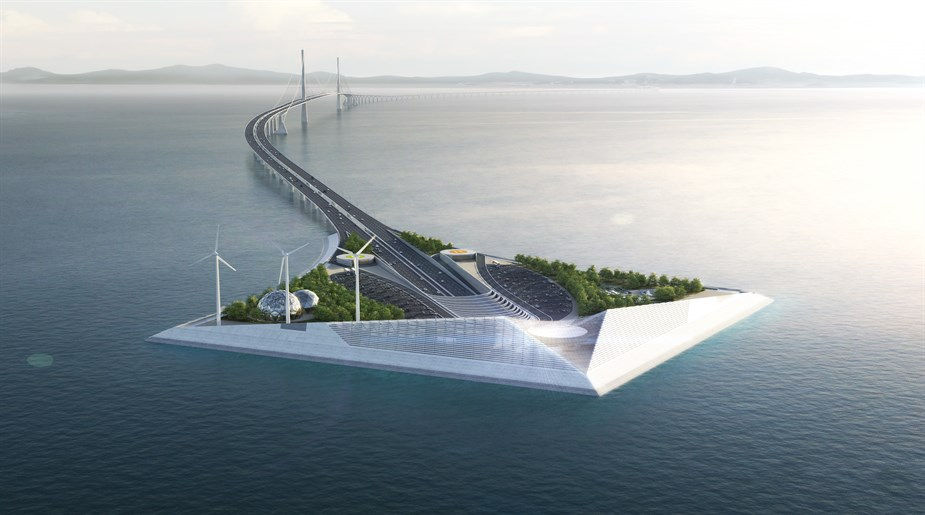
Since that time movement has been made much easier for China residents, and so that group have probably increased further still. Other nationalities made up 2 percent of boundary crossings. Of these trips 67 percent were associated with Shenzhen and 42 percent were for business or work purposes. Of the non-business trips about one third were to visit friends and relatives and the remainder for leisure.
After Shenzhen's attempts to be included in the Hong Kong-Zhuhai-Macau Bridge project were rejected in 2004, a separate bridge was conceived connecting Shenzhen on the Eastern side of the Pearl River Delta with the city of Zhongshan on the Western side: the Shenzhen-Zhongshan Bridge.
Shenzhen Stock Exchange
The Shenzhen Stock Exchange (SZSE) is a mutualized national stock exchange under the China Securities Regulatory Commission (CSRC) that provides a venue for securities trading.

A broad spectrum of market participants, including 540 listed companies, 35 million registered investors and 177 exchange members, create the market.
Since its creation in 1990, the SZSE has grown with a market capitalization around 1 trillion yuan (US$122 billion).
On a daily basis, around 600,000 deals, valued at US$807 million, trade on the SZSE.
High-Tech Industry and Startups
Shenzhen's most important economic sector lies in its role as the headquarters for many of China's High-tech companies. The main industrial zones are the Shenzhen High-Tech Industrial Park and the Shenzhen Software Park which is integrated with Shenzhen Hi-Tech Industry Park.

Shenzhen Hi-Tech Industrial Park (SHIP) was founded in September 1996. It covers an area of 11.5 km2 (4.4 sq mi).
The Industries encouraged in the zone include:
Biotechnology and Pharmaceuticals
Building and Construction Materials
Chemicals Production and Processing
Computer Software
Electronics components (assembling and manufacturing)
Industrial Equipment Production
Medical Equipment and Supplies
Research and Development
Telecommunications Equipment.
Shenzhen Software Park, which is integrated with Shenzhen Hi-Tech Industry Park, is a very important vehicle established by Shenzhen Municipal Government to support the development of software industry.
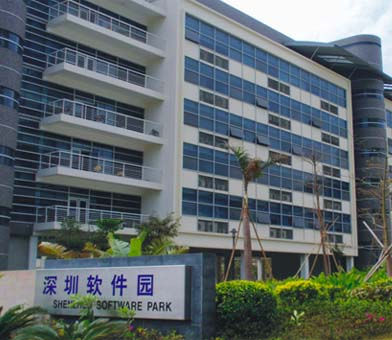
The Park was approved to be the base of software production of the National Plan in 2001. The distance between the 010 National Highway and the zone is 20.8 km (12.9 mi).
The zone is situated 22 km (14 mi) from the Shenzhen Bao'an International Airport.
The Shenzhen Software Park has become one of China's most important software product research and development centers.
This accomplishment is primarily due to four programs which the Software Park setup such as the Software Company Incubation Program, the Software Products Export Program, the Talented Software People Training Program and the International Software Technology Cooperation Program.
Today, Shenzhen is home to many internationally most successful high-tech companies, including Huawei, Tencent, BYD, Konka, Skyworth, Coolpad, ZTE, Gionee, TP-Link, DJI, BGI (Beijing Genomics Institute), OnePlus, etc.
Other prestigious Chinese companies also have large operation centers in Shenzhen including the China International Marine Containers, which is the largest container-manufacturing company in the world, and Vanke, which is among the largest residential real estate developers in China.
Taiwan's largest company, Hon Hai Group, has a large manufacturing plant based in Shenzhen.
Many foreign high-tech companies have their China operations centers located in the Science and Technology Park of the Nanshan District.
If the Silicon Valley reigned supreme in the 80s, Shenzhen is the world’s electronics hub today, or the Silicon Valley of the world if you prefer. Any part you need, you stroll across the street to buy.
In Shenzhen companies can develop whatever hardware or software project such as educational robots, in-ear audio devices, diaper sensors for incontinent patients, and even a bowling ball launcher for children and people with disabilities. Investors-developers come from Australia, China, Europe, Korea, Russia, the United States, and the United Kingdom.
Due to its unique status as the first Chinese special Economic Zone, Shenzhen is also an extremely fertile ground for startups. Successful startups include Petcube, Palette, WearVigo, Notch and Makeblock.
Recently, Shenzhen’s Municipal Government has released a new subsidy policy for companies in the tech and modern service industries.
Financially sound enterprises in the tech-innovation and tech services sector that were established between 2016 to Feb 2017 can now apply for subsidies of 600,000 yuan. (A subsidy is not a loan, it is a grant of the government’s support for start-ups).
Shenzhen is also the product development base of the hardware startup accelerator, HAX Accelerator (formerly HAXLR8R).
Cityscape
Shenzhen's modern cityscape is the result of its vibrant economy made possible by rapid foreign investment since the institution of the policy of "reform and opening" in late 1979 when the SEZ was established. In the 1990s, Shenzhen was described as constructing "one high-rise a day and one boulevard every three days". The Shenzhen's rapidly growing skyline is regarded among the best in the world. It currently has 59 buildings at over 200 meters tall, including the 599 m tall Ping An Finance Centre (the fourth-tallest building in the world) and the 442 m tall Kingkey 100 (renamed to KK100), the 14th-tallest building in the world.
The tallest building in Shenzhen is the 599-meter, 115 floor Ping An Finance Centre, which is also the second tallest in China and the fourth tallest building in the world.
The second-tallest building is the Kingkey 100, rising 441.8 metres (1,449 ft) and containing 100 floors of office and hotel spaces.
Shenzhen is also the home to the Shun Hing Square (Diwang Building), the tallest in Asia (if the antenna is taken into account) when it was built in 1996.
Most of the city's skyscrapers are in Nanshan, Luohu and Futian districts.
SEG Plaza, in Huaqiangbei, is also a noted landmark at a height of 356 meters (291.6 meters to roof-top).
Guomao Building was furthermore the tallest building in China when it was completed in 1985.
There is a significant number of supertalls either proposed, approved or under construction that are well over 300 m (984 ft) in Shenzhen.
Ones that have been completed or topped out since 2014 include the China Resources Headquarters, Riverfront Times Square, China Chuneng Tower, Hanking Center, Hon Kwok City Center, Chang Fu Jin Mao Tower, Zhongzhou Holdings Financial Center, East Pacific Business Center, One Shenzhen Bay Tower 7 and Shum Yip Upperhills, among others.
Biennial Foundation and the Bi-City Biennale of Urbanism\Architecture (UABB)
Biennial Foundation was established in 2009 as a first of its kind initiative aiming to create a platform for dialogue, networking, and knowledge sharing among contemporary art biennials around the world.
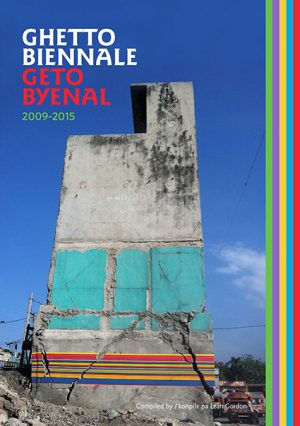
In its years of activity, the foundation has developed new connections and exchanges amongst biennials and biennial practitioners worldwide, and in 2014 the International Biennial Association (IBA) was founded.
The Biennial Foundation soon has become an independent think-tank directing its efforts towards research, discourse, advocacy and diversity without being tied to interest of any particular biennial.
With the success of the two editions of the World Biennial Forum conference organized in Gwangju (2012) and São Paulo (2014), a series of publications and research initiatives, the Foundation has established itself as thought leader in the field, while its website became the single most important resource on biennials on the web.
Currently the foundation provide advocacy and thought leadership for the international arts community and it is putting all its efforts to inspire diverse non-professional audiences by actively fostering the study, recognition and appreciation of perennial exhibitions of contemporary art, design and architecture commonly known as “biennials”.
More specifically, the Biennial Foundation:
develops and maintains a highly-visible on-line interface functioning as the reference point for biennials world-wide;
supports or produces relevant artistic and creative projects;
organizes or provides support to educational initiatives and cultural experiences for diverse professional and non-professional audiences (such as conferences, workshops, training programs, publications, etc.);
fosters interdisciplinary research and production of knowledge related to contemporary worldwide biennials and exhibitions;
provides advice for associations or individuals, and institutions intending to enrich their local infrastructure for contemporary art by setting up a new international exhibition or perennial art event.
Bi-City Biennale of Urbanism\Architecture (UABB) is the only biennial exhibition in the world to be based exclusively on the set themes of urbanism and urbanization.
Organized by the two neighboring and closely interacting cities of Shenzhen and Hong Kong, UABB situates itself within the regional context of the rapidly urbanizing Pearl River Delta, concerns itself with globally common urban issues, extensively communicates and interacts with the wider public, is presented using expressions of contemporary visual culture, and engages international, avant-garde dimensions as well as discourses of public interest.
Initiated by Shenzhen in 2005 and joined by adjacent city Hong Kong in 2007, UABB has evolved into a unique breed among its kind that is held and interacted between twin cities: a Bi-city Biennale.
UABB was originally conceived by the urban planning department of Shenzhen Municipal Government for the purpose of constructing a more influential, more professional and more interactive exhibition.
Although UABB embraces the general name and mechanism of Biennale in arts and architecture exhibition, its inception is divergent from being merely an architecture showcase, and therefore is focusing on the macroscopic background of unprecedented rapid urbanization in China and issues of urban and urbanization.

The name of Urbanism\Architecture implies the idea that architecture belongs to cities and the discussions should be made under the context of cities.
Already held in Shenzhen and Hong Kong for six editions, UABB is the only international biennale that sets "urban & urbanization" as its permanent theme.
With about 930 pieces of excellent exhibits and 520 activities, UABB has attracted over a million visitors worldwide. UABB takes full advantage of multi-media, such as design, image, installations, drama, public art, monographic study and discussion, and reveals different aspects of the progress of urbanization and human habitation of Shenzhen, Hong Kong, China and worldwide.
Different from other exhibitions and expositions, UABB focuses devotedly on the pioneering and conceptual issues of urban & architecture.
In retrospection of the five editions of UABB (SZ), the focal point of works and discussions has been set on themes such as Urban Village & Spontaneous City, City of Expiration and Regeneration, Public Space, Urban-rural Relationship, Agriculture & Border/Edge.
The consequentially exploratory and inspired researches, ideas and discussions already have significant impacts and will keep influencing on Shenzhen, a city self-positioned with the concept of "Vanguard".
The twin city Hong Kong, as the joint-host of the last four editions of UABB, presented preeminent works from local and international designers in creative industry, responded to the local issues and challenged in urbanization, and broadened the horizon of general public to cutting-edge ideas of architecture and urban planning.
To the twin cities Shenzhen and Hong Kong, UABB is like a mineral deposit waiting for further exploration, which plays a decisive role in constructing a win-win situation for the twin cities, in industrial upgrade of the Pearl River Delta Region, in development of satellite cities and inter-cooperation between regions, and in building sustainable cities for the future world.
The future of UABB and the interactions between cities are promising and unlimited.
In its current 7th edition, opened on December 15, 2017, and that will end on March, 2018, the Urban Village section with subtitle of “Hybridity and Coexistence” is the main themed exhibition of this Biennale.
The narrative line focuses on urban villages, representing a unique urban reality in Shenzhen and the Pearl River Delta region.
The exhibition responds and interprets the theme of Cities, Grow in Difference from multiple perspectives, including historical research, in-depth observation, on-site intervention, and future imagination.
The Urban Village section contains a series of themed exhibitions, research presentations, on- site exhibitions scattered throughout the old town, and miniature shows embedded within the main themed exhibition.
It offers a series of spaces scattered on the ground floor, including a story den, game room, photo studio, drawing room, video room, music room, laboratory, future gallery, etc. It will become a hybrid of an exhibition and reality, also of dream and utopia. It is a factory, a laboratory, a workshop, a library, a gallery, a playground, and theme park, and it is also a window into the future.
The Art Making City section explores unorthodox city-making approaches and their effects on the local reality.

Centering on Nantou Old Town, this section will highlight unique characteristics of urban villages with site-specific exhibits and actions.
A series of urban art interventions will be conducted by the participants who have organized diverse social experiments with a strong emphasis on interaction and cooperation with local residents, creating an innovative, open and democratic urban system.
More than 100 artists, architects, art organizations and design groups will be directly involved in this section, with multimedia works that unfold around themes such as “Street Life, Home and Social Production” and “People’s Wisdom.”
These performances, videos, installations on the street, the factories, dormitories, and other sites come together to manifesting the indispensable power of art in city making.
Design Society and architecture firms Mecanoo and Farells
Design Society officially opened to the public on 2 December 2017, in a building designed by Japanese architect Fumihiko Maki for a site on the city's waterfront.
Originally called the Shekou Museum, after the former industrial area is occupied on the city's waterfront, the museum has now been renamed Design Society.
Tokyo-based Maki was commissioned to design the museum by state-owned developer China Merchants Group as part of its Shenzhen Sea World Cultural Arts Centre project, a district comprising shopping, hotels and arts spaces.
The four-storey building comprises a stack of intersecting grey blocks, which project out towards the water or inland.
Planting covers a number of the flat roofs and runs up a broad flight of steps at the side of the building.
It is being held in the permanent gallery space of the V&A museum, which is a "founding partner" of Design Society.
Values of Design looks at how design is regarded across the globe and what principles influence in the industry.
The museum's inaugural exhibition, titled Values of Design, launched on the same date, together with a second show called Minding the Digital. The 250 objects in the show are organized into seven themes – performance, cost, problem solving, materials, identity, communication, and wonder – which intend to highlight their shared design values.
For example, a lacquered chair that was shipped from China to the UK in the 18th century as two flat planks is shown with a stool by Open Desk that can be locally manufactured, illustrating designers' efforts to create furniture that can be cleverly distributed and assembled.
A 19th-century plastic comb is also displayed alongside an ethically-produced smartphone from Amsterdam-based tech company Fairphone, showing the industry's changing attitudes towards making sustainable resources.
Dutch architecture firm Mecanoo has won a competition to masterplan a commercial district in Shenzhen, China, with its design for 12 stepped skyscrapers built around a park featuring a raised path and pools.
Mecanoo's project will see the development of 1.36 million square metres of commercial facilities integrated with Shenzhen North Station, which includes one of the city's regional railway stations and a metro station.
The Shenzhen North Station business district will include offices, retail space, apartments and a hotel in the 12 skyscrapers, all covered in a smart facade system of angled glazing that will respond to orientation.
The towers will range in height, varying from 278 to 428 metres, but each feature a similar shape that tapers towards the top to maintain views and daylight between them. The narrowing shape will be formed by a series of stepped levels, where the architects plan to place roof gardens.
"The towers are conceived within a system of equal setbacks so that the top two-thirds have a smaller footprint than the bottom thirds," said Mecanoo and "…the result is an ensemble of towers that respond to each other's shape, allowing open views and daylight optimization."
The firm intends the shapes to complement the different functions of the scheme. Hotels will be accommodated in the upper levels, whereas the wider, lower floors will house functions that require larger areas, like department stores and open-plan offices.
As well asproviding commercial facilities, Mecanoo's proposal includes an "urban park" built above the underground transportation nodes, featuring grassy areas, trees and pools.
"The proposal aims to create a strong identity for the neighborhood," said the firm. "By situating the transportation nodes on the subterranean levels, the public park appears as an open green space, something the area currently lacks."
"Water features give the urban park a special character, offering cool places where people can relax, meet, and engage in leisure activities," it added.
An elevated pathway will weave between the green spaces to connect the towers, while ramps and overpasses will lead to the railway and metro station.
Another astonishing Macanoo’s project in Shenzhen currently under construction is a new cultural centre lines in the western edge of Longcheng Plaza in the Longgang district, one of the largest suburbs of Shenzhen.
Designed to revitalise this park-like square, the complex comprises a vast bookshop, museum for art, youth centre and science centre spread over four volumes.
The elongated building is an urban connector, and triggers – instead of hinders – a connection between the surrounding areas.
Large arched passageways between adjacent volumes correspond with pathways on the western side and with infrastructure from a new business district on the eastern side. The round forms of the copper facade support the natural flow of passers-by through the area.
By sharing the same form, height and material, the volumes unite as a visually cohesive whole without an apparent front or back facade. The fluid forms of the four volumes channel air currents in a natural way. Visitors and passers-by can shelter from the rain or sun of the local subtropical climate underneath the arches.
The entrances to the cultural centres are located at these covered squares, which allow the various interior programmes to extend outdoors.
The public appeal generated by this project makes Longcheng Plaza part of a new, vibrant city centre with the cultural complex as a landmark.
British architecture firm Farrells has won a competition to masterplan two major commercial sites in the growing Qianhai special economic zone in Shenzhen, China, with plans that include a 320-metre skyscraper.

The firm led by British architect Terry Farrell will oversee the development of two key sites surrounding the Qianhaiwan metro station, which are expected to play a key role in boosting cross-border trade between Shenzhen and Hong Kong.
The first of the two masterplans will provide over 460,000 square-metres of commercial floorspace, including offices, shops, serviced apartments and luxury homes. A 320-metre skyscraper will be built as part of the proposals, alongside a pair of 185-metre gateway towers.
Terry Farrell said: "This project represents a great opportunity to bring sustainable design principles to this dynamic and rapidly expanding part of Shenzhen."
"The proximity of the area to Hong Kong is important and Qianhai will benefit from cross border trade to soon become a thriving district in its own right…" he added.
Overseas Chinese Town (OCT)
The Shenzhen Overseas Chinese Town East (OCT East) (东部华侨城), which is located at Dameisha of Shenzhen, in Yantian District, is the first domestic large comprehensive national ecological tourism demonstration district integrating various theme, such as relaxation, vacation, sightseeing tour, outdoor sports and science popularization education.
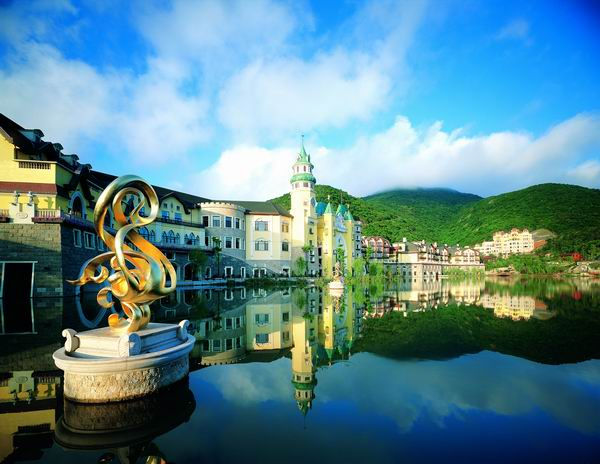
OCT East mainly includes six parts: Knight Valley Eco Park, Tea Stream Valley Holiday Park, Wind Valley Sports Park, Huaxing Temple, Theme Hotel Cluster and Tianlu Mansion.
OCT East include some of the most unique hotels in the world, Oasis City Hotel, OCT EAST Express Hotel, Interlaken Oct Hotel, Parkview O – City Hotel, Otique Aqua Hotel and OCT East Cargo Hotel.
In 2012 OCT East was joined by the OCT Harbour (欢乐海岸) formerly known as OCT Bay or Happy Harbour, which is a large retail and entertainment complex in Nanshan District. It covers an area of roughly 1.25 km2 and features amongst others, a manmade lake and canals, hotels and a shopping mall, including an exhibition center, hotels and residences, an artificial beach called CoCo Beach, and an IMAX cinema.
Museums and exhibitions:
1. Shenzhen Convention and Exhibition Center
Convention & Exhibition Center (会展中心), which is located in Futian Central Business District, is a super large public construction with multi-functions of hosting exhibitions, conventions, business activities, restaurants, and entertainment events.
The structure was designed by the German firm Gerkan, Marg and Partners, and was built by Shenzhen municipal government.
By occupying an area of 280,000 square metres (3,000,000 sq ft), it is the largest single structure building in Shenzhen. It is 540 metres (1,770 ft) in length and 282 metres (925 ft) wide.
The building is 60 metres (200 ft) tall and was completed in 2004 at a cost of CNY3.2 billion.
Shenzhen Convention & Exhibition Center has advanced functions in terms of hosting exhibitions and conventions, and it has already held more than 300 exhibitions and more than 1350 conferences since its opening.
There are nine exhibition halls on the first floor, which total 105,000 square meters, adequate for a large exhibition of 5,000 international-standard booths. The largest hall is around 30,000 square meters.
The Convention center is designed brightly to “float” in the air, covering over 22,000 square meters. It has 25 meeting rooms of different shapes and sizes, and a function hall to accommodate about 3,000 people.
It owns also advanced facilities, such as a complete supporting system, and convenient transportation.
2. Shenzhen Civic Center and Shenzhen Museum
Civic Center (市民中心) is a government building, and it is located within the Futian Central Business District.
It was designed by the architect Li Mingyi and built by the Shenzhen QiXin Construction Group Co., Ltd.
The construction started in late 1998 and was completed in May 2004. It was constructed at a cost of CNY 2.172 billion.
It contains, among others, a museum, a historical archive, a conferences room with a capacity of 2500 and government offices. It is 84.7 meters tall.
A feature of the building is its roof, which spans 486 meters and has a width of 154 meters. The roof is meant to represent the wings of a mythical bird similar to a roc named Dapeng (大鹏), which is also the name of the Dapeng Peninsula and a district in Shenzhen.
Shenzhen Museum (深圳博物馆) is a multifunctional modern museum with two exhibitions all, one on Tongxin Road and the other within the Civic Center.

It has a total area of 37,000 square meters, and a building area of 18,000 square meters. The museum was established in 1981, but was not formally opened until 1988.
It holds more than 20,000 historical and cultural relics, of which the majority originate within the city.
3. Shenzhen Cultural Center
Shenzhen Cultural Center includes Shenzhen Concert Hall and Shenzhen Library and is located in the Futian district.
It was designed by Japanese architect Arata Isozaki.
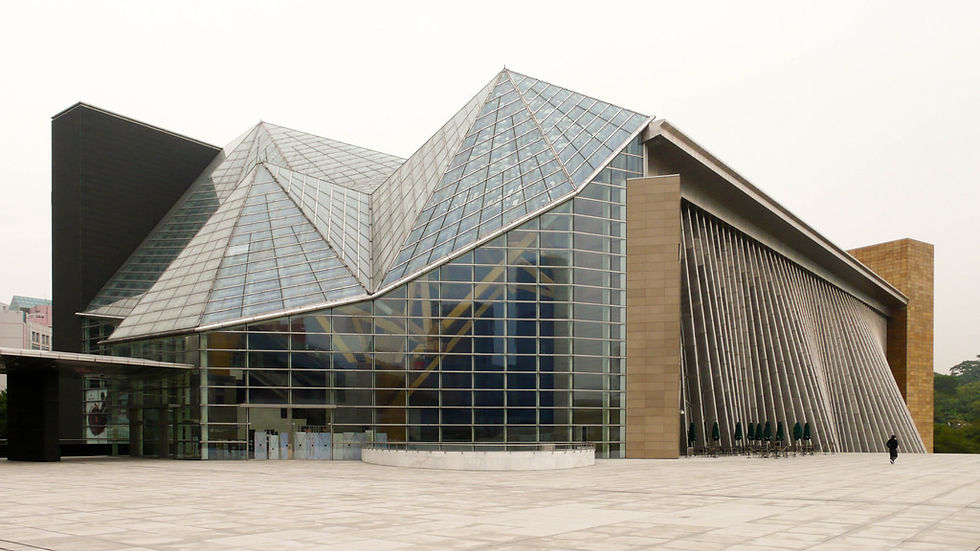
The vineyard-style concert hall seats 1800 and was opened in 2007.
4. Shenzhen Shekou Maritime Museum
Shenzhen Shekou Maritime Museum is a new museum which boasts an 800 square meter exhibition area, 6 major themed exhibitions and nearly 270 kinds of physical specimens, totaling thousands of exhibits.
The new museum combines the modern life of new Shekou with the history and culture of old Shekou and its historical significance as a maritime landmark in Shenzhen.
The museum combines modern uses of sound, light, and Virtual Reality (VR) to submerse guests into the marine biological world and experience the magnificence and magic of the sea.
The six major theme exhibition areas are:
Marine ecology and marine biology;
Shellfish biological evolutionary history;
Marine life and human civilization;
Shellfish marine applications;
Marine biological and economic development;
Ecological civilization construction and protection of marine ecology and marine fish.
An ocean bottom view simulation lets the audience understand and experience the ecological environment of the marine seabed.
5. He Xiangning Art Museum
He Xiangning Art Museum (何香凝美术馆) is an art museum in Nanshan district.
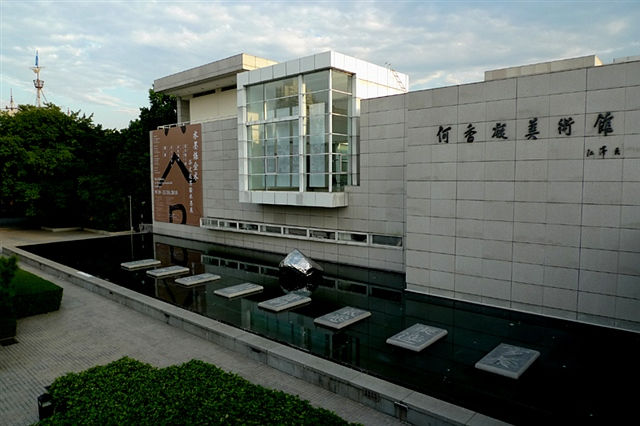
The construction of the museum started in 1995 and was opened in 1997.
The museum is named after He Xiangning, a renowned artist and national leader. It is the first national art museum in China to be named after a person. Its collections are mostly artworks by He Xiangning herself and holds regular exhibitions and display of various contemporary art.
6. Guan Shanyue Art Museum
Guan Shanyue Art Museum is a national art museum named by the artist Guan Shanyue, which officially opened on June 25, 1997.
There are totally 9 exhibition halls, including one central exhibition hall.
Mr. Guan Shanyue, educator and master of Lingnan School, devoted 813 of his works to Shenzhen.
The Guan Shanyue Art Museum’s collection includes about 1,800 pieces of artworks. They are managed according to academic orientation and research direction. Its collection focuses on the study of Guan Shanyue, 20th century Chinese art and the art characteristics of Lingnan School.
Contemporary art focuses on design art, with emphasis on design ink painting collections which link both traditional and modern art, and other types of art collections as well.
The organization structure of this museum consists of four parts, which are chief office department of research and collection, department of exhibition and department of promotion and department of planning.
7. OCT Contemporary Art Terminal and OCT Loft
OCT Shenzhen Contemporary Art Terminal (OCAT Shenzhen), was founded in 2005 and functions as the headquarters of the OCAT Museums.
As the first art establishment among the OCAT museums, OCAT Shenzhen has a long-term commitment to the practice and research in the field of contemporary art and theory both inside of China and in the international arena.
The programs of OCAT Shenzhen focus on in-depth surveys, research, publication, and presentation of both individual artists and thematic group exhibitions.
In addition to these activities produced under the title of OCAT Exhibitions, OCAT Residency Program, OCAT Performs and OCAT Screens, there are also annual programs showcasing performance-based practices, accompanied by dialogues between art workers from different academic and cultural backgrounds, theoretical discussions on art, dance, and theater, as well as screenings of and lectures on documentaries, video art, and films.
At OCAT Shenzhen, publishing is both prompted by its exhibitions and an independent form of artistic and conceptual articulation and experimentation.
The conception, editing, and design of its publications could be employed as a form of artistic practice in parallel to the exhibitions.
Young practitioners as well as recent developments in progressive thinking and discovery in art are central to the programs of OCAT Shenzhen.
OCAT Youth Project was launched to present the recent work, experience, thinking, and imagination of artists, curators, and critics.
OCT Loft Creative Culture Park (OCT Loft), is located in Shenzhen OCT east original industrial zone.
The park covers an area of about 150.000 square meters, with a construction area of about 200.000 square meters, and it is divided into north and south sides.
OCT Loft was originally a place for electronic component manufacturing. Before it became Shenzen’s creative heart, the compound was owned by a Chinese TV maker.
Converted from an austere communist-era factories, OCT Loft is today one of the best places to see contemporary art in Shenzhen.
Large exhibition spaces and private galleries are complemented by chilled cafes, classy restaurants or restaurants with exposed ventilation ducts, quirky fashion boutiques, a gem of a bookstore, and the obligatory lifestyle outlets.
Renovated from the abandoned factory buildings by Shenzhen architecture firm Urbanus, in 2005, the site enjoyed its first Architectural Biennale, and has since drawn interest worldwide for its arts and design events.
In 2008 the Oct Art and Design Gallery opened, an soon it has become a worldwide famous art space showcasing postmodern works which has played an integral role in Shenzhen’s increasing prominence in the world of design. This was also the year Shenzhen was dubbed UNESCO City of Design.
Adjacent to the complex is a gallery opened in homage to painter He Xiangnang, who along with her husband Liao Zhongkai, was a founder member of Kuomintang and devoted follower of modern China’s first president Sun Yat-Sen.
A politician alongside a patron of the arts, He Xiangnang’s son Liao Zhongkai became the driving force behind the development of the district.
Today, the cultural park is an important hub for fine art, architecture, and even boasts its own Jazz festival.
Transport:
Road
Since February 2003, the road border crossing at Huanggang and Lok Ma Chau in Hong Kong has been open 24 hours a day. The journey can be made by private vehicle or by bus.
On 15 August 2007, the Lok Ma Chau-Huanggang pedestrian border crossing opened, linking Lok Ma Chau Station with Huanggang. The planned Shenzhen–Zhongshan Bridge will connect Shenzhen on the Eastern side of the Pearl River Delta with the city of Zhongshan on the Western side. It will consist of a series of bridges and tunnels, starting from Bao'an International Airport on the Shenzhen side. Construction of the proposed 51 km (32 mi) eight-lane link is scheduled to start in 2015, with completion scheduled for 2021.
Taxis are metered and come in four colors. The red taxis may travel throughout the city. The green taxis are restricted to travel outside of the original Shenzhen Special Economic Zone (SEZ) (Futian, Nanshan, Luohu and Yantian districts). Conversely, the less-common yellow taxis, charging the same as the red ones, run only within the original Shenzhen SEZ. A recently introduced electric-powered taxi costs similar to the red and yellow ones, only having no fuel surcharge levied on. There are also frequent bus and van services from Hong Kong International Airport to Huanggang and most major hotels in Shenzhen. A bus service operated by Chinalink Bus Company operates from Kowloon Station on the Airport Express MTR line (below Elements Mall) direct to the Shenzhen International airport.
Port
The city's 260-kilometre (162 mi) coastline is divided by the main landmass of Hong Kong (namely the New Territories and the Kowloon Peninsula) into two halves, the eastern and the western.
Shenzhen’s western port area lies to the east of Lingdingyang in the Pearl River Estuary and possesses a deep water harbour with superb natural shelters. It is about 20 nautical miles (40 km) from Hong Kong to the south and 60 nautical miles (110 km) from Guangzhou to the north.
By passing Pearl River system, the western port area is connected with the cities and counties in Pearl River Delta networks; by passing On See Dun waterway, it extends all ports both at home and abroad.
Shenzhen handled a record number of containers in 2005, ranking as the world's third-busiest port, after rising trade increased cargo shipments through the city.
China International Marine Containers, and other operators of the port handled 16.2 million standard 20-foot (6.1 m) boxes last year, a 19 per cent increase. Investors in Shenzhen are expanding to take advantage of rising volume. Yantian International Container Terminals, Chiwan Container terminals, Shekou Container Terminals, China Merchants Port and Shenzhen Haixing (Mawan port) are the major port terminals in Shenzhen.
Air
Donghai Airlines, Shenzhen Airlines and Jade Cargo International are located at Shenzhen Bao'an International Airport.
The airport is 35 kilometres (22 miles) from central Shenzhen and connects the city with many other parts of China, and serves domestic and international destinations. The airport also serves as an Asian-Pacific cargo hub for UPS Airlines. Shenzhen Donghai Airlines has its head office in the Shenzhen Airlines facility on the airport property. SF Airlines has its headquarters in the International Shipping Center.
Railway
Shenzhen Railway Station is located at the junction of Jianshe Road, Heping Road and Renmin Nan Road and provides links to different parts of China. There are frequent regional high speed trains to Guangzhou, plus long-distance trains to Beijing, Shanghai, Changsha, Jiujiang, Maoming, Shantou and other destinations. The train from Hong Kong's Hung Hom MTR station to the Lo Wu and Lok Ma Chau border crossings take 43 minutes and 45 minutes respectively.
Shenzhen West Station is located at Qianhai, Nanshan. This station is used for a small number of long distance trains, such as ones to Hefei.
Shenzhen North Railway Station opened in 2011 in Longhua. The station is currently handling high-speed trains to Guangzhou South, Guangzhou North, Changsha, Wuhan, Beijing and intermediate stations on the Beijing, Guangzhou, Shenzhen and Hong Kong HSR.
Shenzhen East Railway Station was opened in December 2012. It was originally called Buji station after the suburb it is located and was a Grade 3 station along the Guangshen Railway with no passenger services. Now after massive renovations, it currently handles mostly regional rail services.
Pingshan Railway Station was completed in 2013 to serve high-speed trains on the Xiamen–Shenzhen HSR which opened in 2013.
Futian Railway Station was completed by the end of 2015. It is completely underground, located in the center of its namesake Futian District. The central location means it will become the focal point for most high-speed train services on the Beijing-Guangzhou-Shenzhen-Hong Kong HSR route upon completion. Connection to West Kowloon Railway Station in Hong Kong is scheduled to be completed in late 2018, allowing for 15 minute cross-border train journeys.
Metro
The Shenzhen Metro system opened on 28 December 2004. Phase I had only two lines: the Luobao line (now Line 1) and Longhua line (now Line 4). The Luobao line ran from Luohu (interchange for Lo Wu MTR station and Shenzhen railway station) to Window of the World (Overseas Chinese Town). The Longhua line ran from Huang Gang (now Futian Checkpoint) to Shaonian Gong (now Children's Palace).
In June 2011, the Shenzhen Metro extended Line 1 and Line 4. Line 1 runs from Luohu to Shenzhen Bao'an Airport and Line 4 (now operated by Hong Kong MTR) runs from Futian Checkpoint to Qinghu. Also in June 2011, three lines of Phase II opened before the 26th summer Universiade. They are Line 2 (from Chiwan to Xinxiu), Line 3 (from Yitian to Shuanglong), and Line 5 (from Qianhaiwan to Huangbeiling). The first batch of lines in Phase III, Line 11, opened in June 2016. Lines 7 and 9 opened at the end of 2016. By then the Shenzhen Metro currently has 8 lines, 199 stations, and 286 kilometres (178 mi) of lines in operation. This made the Shenzhen Metro one of the top ten longest metro systems in the world. Several additional lines and extensions as part of the second batch of Phase III expansion are under construction and will open by 2020. A number of Phase IV lines will start construction in 2017.
Sea
Shekou Passenger Terminal in Shekou provides regular ferry transport to and from Zhuhai, Macau, Hong Kong International Airport, Kowloon, and Hong Kong Island. Fuyong Passenger Terminal in Bao'an near the airport provide services to and from Hong Kong (Hong Kong International Airport) and Macau(Taipa Temporary Ferry Terminal and Outer Harbour Ferry Terminal).
For setting up a company in Shenzhen, visit our Shenzhen FTZ Company Formation page
























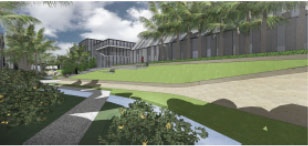
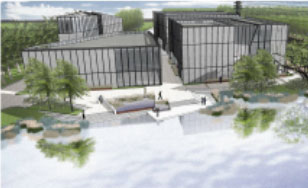















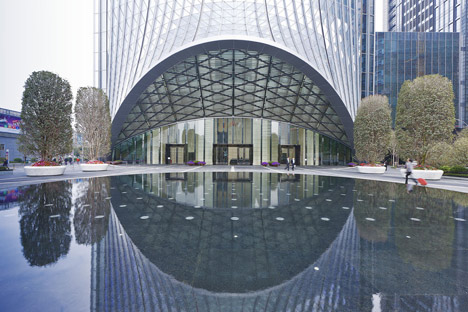







































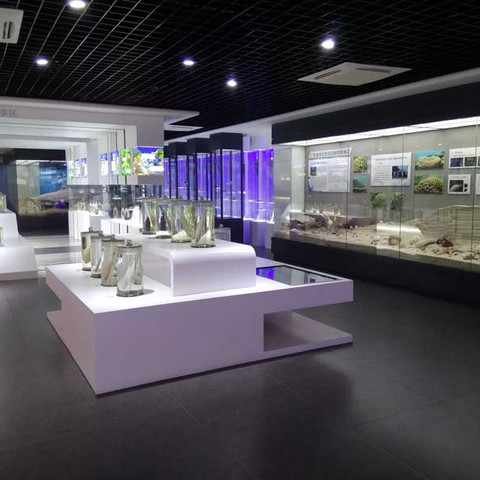
















Komentáře